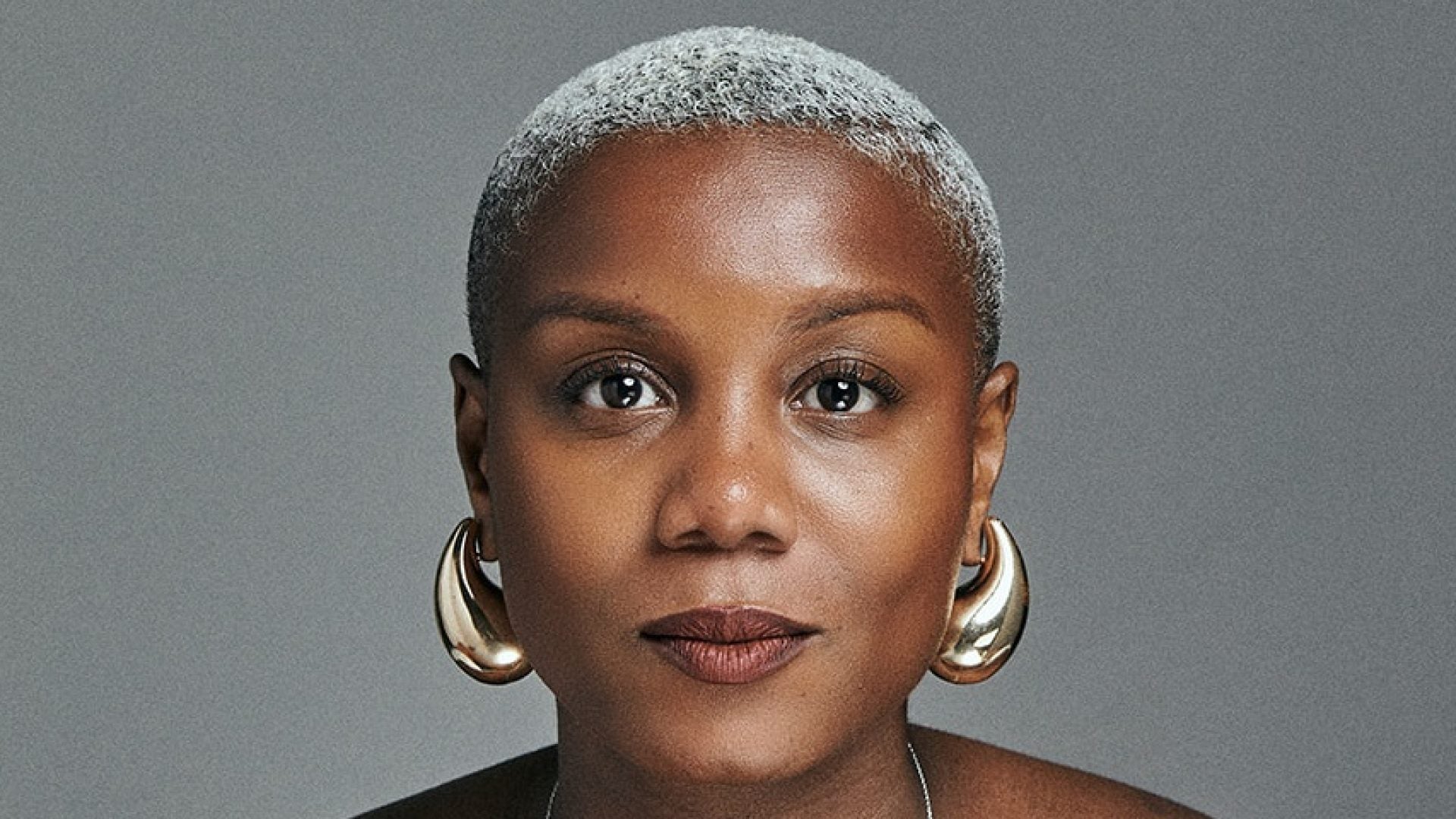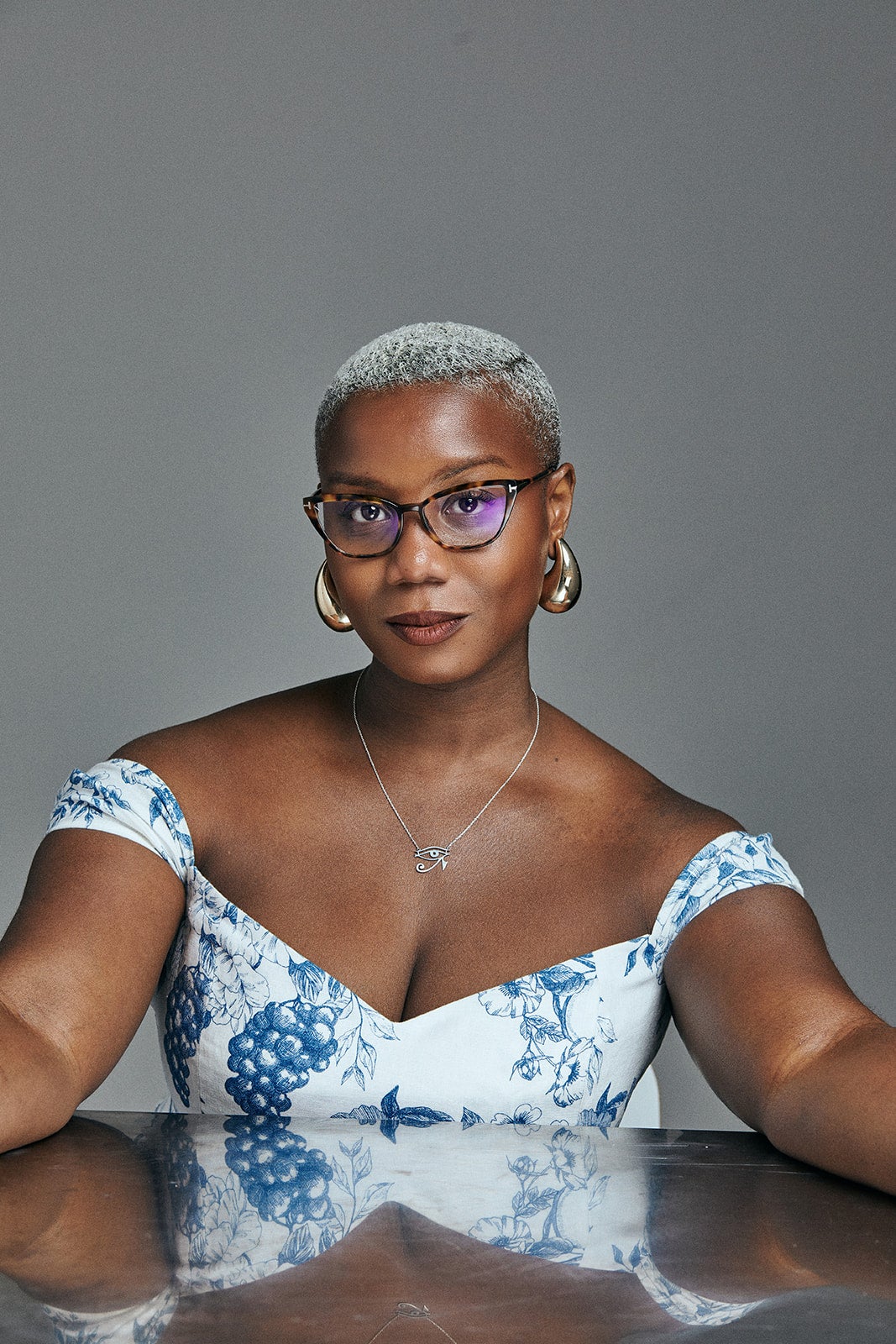
Ja’Tovia Gary doesn’t just have one brainchild. Instead, she engrosses herself into her various inspirations and mediums which leads to a blossoming of creativity and profound work.
“I’m an experimental filmmaker, but I’m not objective in any way, shape, or form,” the multidisciplinary artist says. “In fact, I think there’s a problem with this idea that we are neutral, and that I’m a fly on the wall. It’s a way of hiding your hands, and hiding away powers manipulating the story. So by including myself, I’m implicating myself in the ideas and concepts, the arguments, and the assertions that are being made.”

For the first time and a long time coming, Gary’s thought-provoking three-channel video installation “The Giverny Suite” is now on display at the Museum of Modern Art (MoMA). Filmed in Harlem, New York and Giverny, France, the eye-opening film montage delves into Black women’s safety and autonomy. The channels feature Gary conducting vox pop interviews on Malcolm X Boulevard and West 116th Street asking Black women if they feel safe. These interviews interchanged with archival clips of singers Nina Simone and Josephine Baker, activist Fred Hampton, Gary in Monet’s garden, brief excerpts of Diamond Reynolds filming Philando Castile being killed by police in 2016, and altars and furniture representing Yoruba deities Yemaya and Oshun.
In 2016, Gary, from Dallas, Texas, attended a film residency in Giverny, France. Here, she visited Claude Monet’s garden where he painted his water lilies. Aside from the history and scenery, Gary was taken aback when she realized she was the only Black person around as far as the eye can see. 2016 was also a year of tension and catastrophe, especially in France and the U.S.
“We’ve got Philando Castile and we’ve got me in the garden,” she says. “It’s kind of juxtaposed. I really wanted to think through positionality. I’m from a working class background, I’m Southern. I come from farmers, preachers, and factory workers. But here I am having ascended in some level, way, shape, or form. I was feeling a dissonance internally with where I was and what was happening back home.”
From mass shootings to a migrant crisis, Gary says she felt dissociated from the real world as she indulged in the paradise that is Giverny. Despite the fact, she opened her mind and raised questions to address her role in everything between privilege and oppression.
“Bodies have juridical protection under the 13th and 14th Amendments, flesh does not,” Gary says. “Flesh can simply be apprehended. In France, there were moments where I felt like I was going to be apprehended in the lap of luxury. I started carrying around a knife. There were people walking directly into me because they couldn’t even see me. There were also people who were staring. There was hyper visualization for invisibility.”
“The Giverny Suite” was also shown at Frankfurt’s Museum für Moderne Kunst and at Paula Cooper in 2020. This time around, the film will be much more immersive as the layered three channels play all around you.
“This work brings to bear a space of a kind of capitalist body around the agency of the body,” she says. “But it’s also about a body as a space of ingenious, Black feminist creative power…That’s what a lot of this work is attempting to attend to and bring into a space that is almost overwhelmingly white. This work has gone to film festivals in the single channel version, but it moves in museum gallery spaces. It’s really about centering us in spaces that have, in the past, relegated us to the margins.”
Gary often puts herself in her own work in an autoethnographic way to voice her own larger arguments and ideas. She says over the past 10 years, she’s been working on an autobiographical film about her and her family. When it’ll be done – only time will tell.
Her notable films also include her newest one “Quiet As It’s Kept” (2023), “An Ecstatic Experience” (2015), “Cakes Da Killa: No Homo” (2013), and “Women’s Work” (2012). And we can’t forget her multitude of sculptures, installations, curations, music videos, and presentations. She is known for almost all of her projects to be avant garde combined with Black subjectivity.
“It’s wild because I feel like the mainstream really loves to lift avant garde and experimental techniques in order to add some freshness or alterity to what they’re doing,” Gary says. “I could say avant garde looks like a split screen or staccato editing and really interesting music…It’s really hard to pin down, the avant garde is always evolving. I think Black people are actually at the forefront of the avant garde and experimentation – especially when you think about music, but even in the visual sphere as well.”
As Gary continues to fulfill her dreams to be an artist, it’s safe to say that she’s gone above and beyond to make her dreams a reality. Her multifaceted mediums further prove the truth behind her work’s recurring theme of Black subjectivity.
You can buy tickets to view “The Giverny Suite” at moma.org.